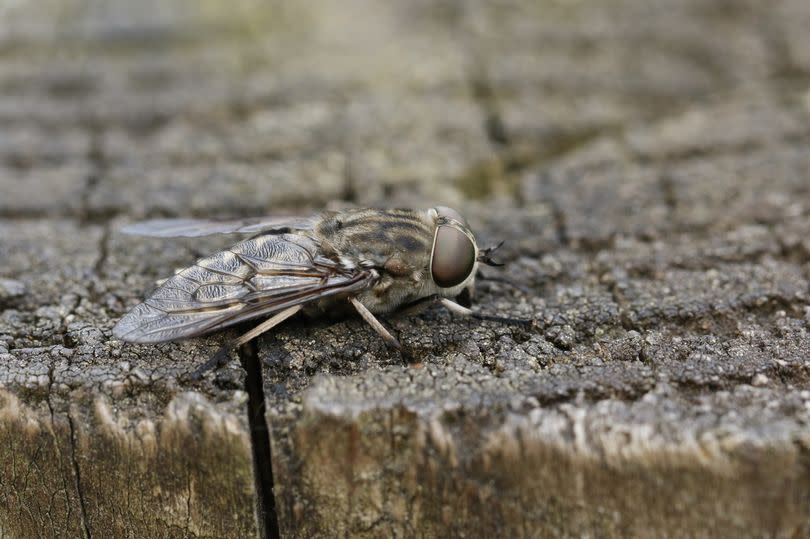Warning issued over 'relentless' insect with one of UK's 'most painful bites'

Summer brings its own set of health challenges, including the risk of dehydration, sunburn, and painful insect bites. Among the most troublesome in the UK are horseflies, which are particularly active from May to September, often around stables and fields.
These insects have a preference for horses, hence their name, but they can also bite humans. Horsefly bites are usually not harmful, although they can be quite painful.
It's only the female horseflies that bite, as they need blood for their eggs to develop after fertilisation. Male horseflies do not require blood since they don't produce eggs.
READ MORE: Woman got stuck on rock armour at North Wales beach after chasing dog
READ NEXT: TikToker stayed in North Wales' 'worst rated hotel' and says 'it totally surprised me'
The Cleveland Clinic has described the bite of a female horsefly as "relentless". They possess powerful mouthparts designed to tear through skin until they reach blood, which they then absorb with their sponge-like tongues.
Despite their potential to cause discomfort, horseflies are adept at landing undetected due to their light weight and small size, measuring just 1-2.5cm, reports Wales Online. Dr Daniel Whitmore from the Natural History Museum has pointed out that the horsefly's biting mechanism is "much less sophisticated" than that of mosquitoes.
This is likely because their typical prey, such as cows or horses, have tougher skin than humans. Nonetheless, horseflies will bite any large mammal they come across.
Bites from certain insects could potentially lead to an allergic reaction or an infection. In extremely rare instances, a horsefly might transmit a bacterial contagion known as tularemia, colloquially referred to as "rabbit fever".
Occasionally, symptoms such as dizziness and breathlessness could emerge due to a horsefly bite. Dr Whitmore advises that one of the simplest methods to avert being bitten is to keep your skin covered.
However, he states: "Horsefly females have such strong, powerful mouthparts that they can sometimes bite you through your clothes. But obviously they are more likely to go for bare skin."
How can I tell if I've been bitten?
The sensation of a horsefly bite tends to be on the painful side, inducing redness and itchiness which could potentially develop into an infection. The bites tend to rapidly turn into uncomfortable bumps and may leak liquid if infected.
Certain individuals may experience feelings of warmth, weakness, and nausea. If you suspect you're dealing with an infection, you should consult with your doctor promptly.
In the most severe instances, some individuals may encounter an allergic response with symptoms including vertigo, difficulty breathing, inconsistently coloured skin rash and pronounced swelling observable in your lips or tongue. If you experience any of these reactions, it's imperative that you seek immediate medical attention.
What steps to follow if you've been bitten
Healthline advises that if you're bitten by a horsefly, you should clean the wound and apply antiseptic cream. While most bites will heal naturally, it's important to monitor for signs of infection.
If you experience difficulty breathing, develop a rash, or the pain worsens, seek immediate medical attention.
Join the North Wales Live WhatsApp community group where you can get the latest stories delivered straight to your phone

 Yahoo News
Yahoo News 
